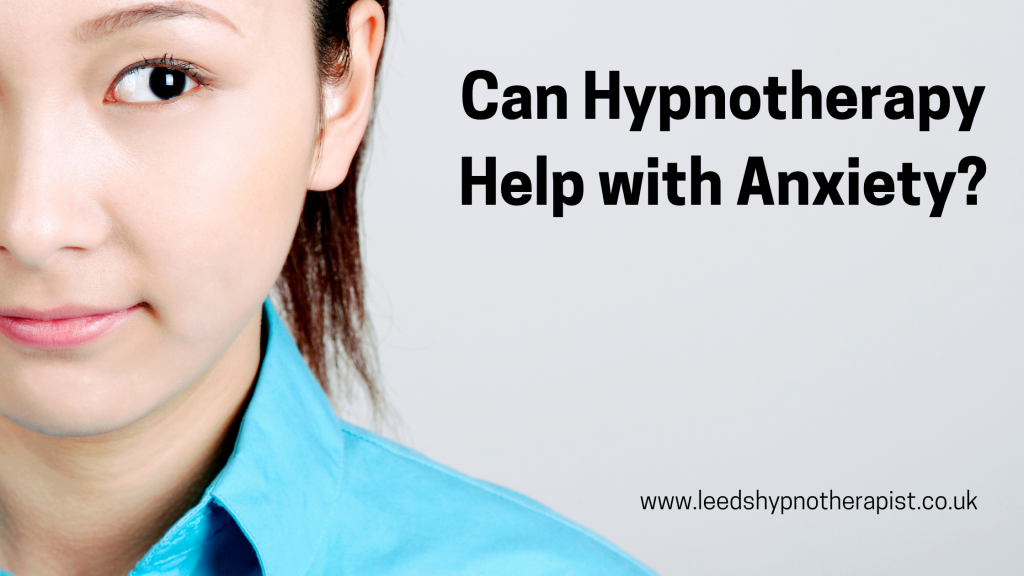Anxiety, a pervasive condition affecting millions globally, often finds its sufferers relentlessly seeking relief through various means—medication, therapy, exercise, and more. Yet, amid the myriad solutions on offer, one question that frequently emerges is “Can hypnotherapy help with anxiety?” Especially within the bustling city of Leeds, where the pace of life can exacerbate stress and anxiety levels, this question becomes all the more pertinent. In this explorative piece, we’ll delve into the world of hypnotherapy as a potential beacon of hope for those grappling with anxiety, weaving together scientific insights, techniques, and real-life stories from the heart of Leeds. Our aim? To offer you a well-rounded perspective on whether hypnotherapy could be your next step towards tranquillity.
Understanding Anxiety and How Hypnotherapy Comes Into Play
Anxiety disorder goes beyond the fleeting moments of worry or fear that individuals might experience as part of daily life. It is a pervasive and persistent condition that can significantly impede an individual’s ability to function in various aspects of life, including work, relationships, and overall well-being. At its core, anxiety serves as an alarm system, drawing our attention to potential threats and preparing us to confront or avoid them. This system, deeply embedded in our subconscious mind, sometimes becomes overly vigilant, alerting us to dangers that are not present or are not as severe as perceived. This results in an unending cycle of worry and apprehension about future events that the subconscious mind is unsure about or finds unsettling.
How Hypnotherapy Addresses Anxiety
Clinical hypnotherapy emerges as a beacon of hope amidst the tumult caused by anxiety disorders. It operates on the premise of easing the individual into a state of deep relaxation and heightened suggestibility, known as hypnosis, to access the subconscious mind. This state allows the therapist to introduce positive suggestions and coping mechanisms directly to the subconscious, aiming to recalibrate the overly eager alarm system. By clearing the ‘clutter’ that has amassed over years of negative conditioning, hypnotherapy seeks to diminish the overwhelming influence of irrational fears and anxieties. The process can dramatically transform how individuals respond to situations that would have previously triggered their anxiety, enabling them to feel more relaxed and in control. Through clinical hypnotherapy, people learn to approach potential stressors with a new perspective, one that minimises apprehension and promotes a healthier, more balanced reaction to challenges.
The Science Behind Hypnotherapy Work for Anxiety Relief
While the concept of using hypnosis for anxiety might seem mystical to some, it’s grounded in robust psychological science. Hypnotherapy taps into the subconscious part of the mind, which influences habits, fears, and involuntary responses. The relaxation state achieved during hypnosis allows individuals to be more receptive to therapeutic suggestions. These suggestions can then reframe negative thought patterns, which are often the root cause of anxiety disorders, including social anxiety and generalised anxiety disorder. The question, “Can hypnotherapy help with anxiety?” is met with a growing body of research that supports its efficacy, showing significant reductions in anxiety levels among those who undergo such treatment.
How Hypnosis Tackles Generalised Anxiety Disorder
Generalised Anxiety Disorder (GAD) is characterised by excessive, uncontrollable worry about everyday things. Through hypnotherapy, individuals learn to harness the power of suggestion to replace their worry with positive, calming thoughts and behaviours. This is crucial in breaking the cycle of anxiety where the fear of fear itself becomes overwhelming.
Addressing Social Anxiety Through Hypnosis
Social anxiety stems from a fear of being negatively judged or embarrassed in social situations. Hypnosis for anxiety in this context focuses on boosting self-confidence and reducing sensitivity to the perceived opinions of others. With guided hypnotherapy sessions, individuals can begin to dismantle the negative belief systems that fuel their social fears, paving the way for more positive interactions and experiences.
Can Hypnotherapy Help With Anxiety Across the Board?
The effectiveness of hypnotherapy is not limited to just social anxiety or generalised anxiety disorder; it has the potential to alleviate various forms of anxiety. By establishing a deeper sense of calm and control, hypnotherapy empowers individuals to approach formerly daunting scenarios with newfound serenity and assurance, answering the question affirmatively – yes, hypnotherapy can indeed help with anxiety.
Real Stories from Leeds: How Hypnotherapy for Anxiety Changed Lives
In the heart of Leeds, a transformation is unfolding. Individuals once shackled by the chains of anxiety are breaking free, thanks to the power of hypnotherapy. The stories you are about to read are not just narratives; they are testaments to resilience, hope, and the profound impact hypnotherapy can have on lives. Each account offers a glimpse into the struggles faced by those with anxiety and the remarkable journeys they embarked upon towards empowerment and renewed self-confidence. These are the voices of real people from Leeds, who have navigated the tumultuous waters of anxiety and emerged stronger on the other side.
H from Leeds
I recently helped a teenager with anxiety and emetophobia. First of all, we cleared his emetophobia which was a fear and anxiety about being around people who were ill or vomiting and also being sick himself. After clearing his emetophobia we then worked on his anxiety around exam stress and also cleared his fear of flying for an upcoming school trip.
S from Leeds
S came to see me due to performance anxiety of a sexual nature. Previously, he would get anxious about sex and this would lead to issues in the bedroom. After working with S he now feels very confident and not only is he happier but his wife is too!
Bernadett from Leeds
I helped Bernadette with driving anxiety and also some other issues from her past that were causing issues years later. Bernadett worked with me over 4 sessions and as you can see in her review it has changed her life dramatically.
You can read the full review here
Techniques of Hypnotherapy in Managing Anxiety Symptoms
Hypnosis for anxiety stands out as a revolutionary approach in the realm of psychological therapies, offering a profound means to address and treat anxiety at its core. Unlike conventional methods that may rely on medication or long-term psychotherapy, hypnosis focuses on guiding individuals into a relaxed state, where the mind is more receptive to positive suggestions and healing. This technique not only aids in alleviating symptoms of anxiety but also empowers people to understand and manage their emotions more effectively, ultimately leading to a significant improvement in their quality of life. With hypnosis, individuals learn to transform their perception of anxiety, turning overwhelming challenges into manageable obstacles.
Kinetic Shift Technique in Hypnosis
The kinetic shift technique is a dynamic and effective method used in hypnosis to quickly identify and clear the accumulated symptoms of anxiety. This process involves guiding the client into a deeply relaxed state, where the practitioner can swiftly pinpoint the underlying cause of anxiety. By directly addressing and working through these root causes, clients can find immediate relief and prevent the recurrence of anxiety, allowing them to feel more in control of their emotional states.
Grounding Techniques
Grounding techniques are essential components of hypnosis designed to treat anxiety. These methods focus on bringing individuals back to the present moment, helping them feel more secure within their own bodies. During a panic attack or when individuals feel anxious, they often detach from their current environment, exacerbating their symptoms. Grounding techniques taught during hypnosis sessions enable clients to anchor themselves, fostering a sense of safety and calmness amidst the chaos of anxiety.
Resolving the Root Cause
Addressing the root cause of anxiety is a pinnacle in the therapeutic process of hypnosis for anxiety treatment. Through a series of targeted exercises and guided imagery within a hypnosis session, clients are empowered to explore and unravel the core issues that trigger their anxiety. This exploration and subsequent resolution offer a dual benefit—providing immediate relief from the symptoms of anxiety and imparting a deeper understanding of personal triggers. Such insights equip individuals with the knowledge and tools needed to manage and mitigate future episodes, fostering a more relaxed and assured existence.
Comparing Hypnotherapy to Traditional Treatments for Anxiety
When exploring traditional treatments for anxiety, several methodologies stand out, including counselling, Cognitive Behavioural Therapy (CBT), and psychotherapy. These treatments aim to provide individuals with the tools needed to manage their anxiety symptoms and address the underlying causes of their mental health condition.
Counselling for Anxiety
Counselling offers a supportive environment where individuals can discuss their feelings and concerns. This therapeutic process assists in identifying potential triggers of anxiety, fostering a deeper understanding of oneself. Typically, counselling sessions for treating anxiety may span several weeks to months, depending on the individual’s progress and the severity of their symptoms.
Cognitive Behavioural Therapy (CBT)
CBT is a highly effective, evidence-based approach to treat anxiety. It focuses on altering negative thought patterns and behaviours that contribute to the symptoms of anxiety. By implementing practical strategies, clients learn to challenge and overcome these detrimental thoughts over time. The duration of CBT for anxiety treatment usually ranges between 5 to 20 sessions, with each session building upon the last to reinforce new coping mechanisms.
Psychotherapy and Anxiety
Psychotherapy, or “talk therapy”, involves deep explorations into the emotional reasons and life events that may be the cause of your anxiety. It aims to provide insight into and resolution of these underlying issues. Psychotherapy sessions can extend over months or even years, based on the complexity of the individual’s condition and their rate of progress.
Traditional Therapies Compared to Hypnotherapy for Anxiety
Comparing these traditional methods to hypnotherapy, we find a significant difference in the treatment timeline. A proficient hypnotherapist can significantly reduce the symptoms of anxiety within just 3 to 4 sessions by addressing the root cause of the mental health condition. This is a more condensed approach compared to the extensive time commitment demanded by counselling, CBT, and psychotherapy.
Additionally, hypnotherapy offers unique grounding techniques that are not typically emphasised in other treatments, providing immediate relief from anxiety symptoms and a rapid return to normalcy. Organisations like Anxiety UK support the use of various treatments for anxiety, recognising that the effectiveness of each depends on the individual’s specific needs and the underlying factors of their anxiety.
Steps to Begin Your Journey with Hypnotherapy for Anxiety in Leeds
Initiating your healing journey with hypnotherapy to overcome anxiety is just a step away. The Leeds Hypnotherapist offers both online hypnotherapy sessions and face-to-face consultations, tailored to meet your needs and comfort. Understanding how hypnotherapy can help is crucial in reducing anxiety and managing the feelings of anxiety effectively. To explore how clinical hypnosis can aid in overcoming your challenges, you’re invited to book a free initial consultation. This no-obligation chat provides an opportunity to discuss how you can benefit from hypnotherapy, with specific focus on your individual needs. Visit The Leeds Hypnotherapist today to schedule your session and take the first step towards a life free from the constraints of anxiety.
Addressing Common Misconceptions About Hypnotherapy and Anxiety
Despite the proven benefits and growing acceptance of hypnotherapy as a credible and effective treatment for anxiety, numerous misconceptions still abound. These misunderstandings often stem from sensationalised representations of hypnosis in media and a general lack of awareness about its therapeutic applications. Hypnotherapy, in reality, is a far cry from the dramatised versions seen on stage or screen. It does not involve losing control or being made to act against one’s will. Instead, it’s a state of focused attention, heightened suggestibility, and increased relaxation, guided by a professional to help individuals explore thoughts, feelings, and memories they might be unaware of in their conscious mind.
In the following section, we’ll tackle some of the most common myths surrounding hypnotherapy for anxiety, shedding light on the truth behind these misconceptions to provide a clearer understanding of what hypnotherapy genuinely involves and its potential to transform lives positively.
Misconception 1: Hypnotherapy Is a Quick Fix for Anxiety
Many believe that hypnotherapy offers an immediate solution to anxiety. The truth is, while hypnotherapy can help you overcome various types of anxiety, it’s not a magic cure. It requires commitment to sessions and the willingness to engage in self-reflection and work.
Misconception 2: You Lose Control Under Hypnosis
A common fear is that being hypnotised means losing control of your mind or actions. In reality, hypnotherapy is a collaborative process where you remain in full control and conscious awareness. It empowers you to access and harness your inner strengths to overcome anxiety.
Misconception 3: Hypnotherapy Works the Same for Everyone
It’s often mistakenly thought that hypnotherapy offers a one-size-fits-all solution. However, its effectiveness varies based on individual susceptibility, types of anxiety, and personal history. Hypnotherapy is tailored to meet your unique needs, making it an effective treatment.
Misconception 4: You Can Get Stuck in a Hypnotic State
A myth surrounding hypnotherapy is the fear of not ‘waking up’ from hypnosis. This is fundamentally untrue; hypnotherapy sessions are designed to guide you into a relaxed state and back out again, ensuring your safety and comfort throughout.
Misconception 5: Hypnotherapy Is Only for Mental Health Issues
While hypnotherapy is an effective treatment for various types of anxiety, it’s not limited to mental health concerns. Hypnotherapy can also aid in improving sleep, managing pain, and fostering healthier habits, demonstrating its versatility and wide-ranging benefits.
Misconception 6: Hypnotherapy Is Purely Placebo
Some sceptics dismiss hypnotherapy as merely placebo, attributing its success solely to the individual’s belief in the process. However, numerous clinical studies have validated hypnotherapy as an effective treatment modality for anxiety, underlining its legitimacy and efficacy.
Misconception 7: All Hypnotherapists Are the Same
A prevalent misconception is that all hypnotherapists possess the same skillset and approach. In truth, hypnotherapists come from varied backgrounds, adopting different techniques. Choosing a hypnotherapist should be based on their expertise, qualifications, and how well they understand your unique condition to help you overcome anxiety effectively.
So, Can Hypnotherapy Help With Anxiety? Let’s Discuss
In conclusion, the question of “can hypnotherapy help with anxiety?” has been substantiated by clinical research and countless positive outcomes. For those who suffer from anxiety, hypnotherapy presents a viable option beyond traditional treatments. It is essential to understand that hypnotherapy for anxiety sessions are tailored uniquely to the individual, addressing the root causes of anxiety in a manner that is supportive and non-invasive. This customization underscores how hypnotherapy is very different from generic therapy methods, making it a powerful tool in combating anxiety.
Discover a New Approach to Managing Anxiety
Hypnotherapy offers a fresh perspective for those seeking relief from anxiety. By engaging with the subconscious mind, it provides an opportunity to reframe negative patterns and encourage positive change. If you’ve been struggling to find a solution for anxiety that aligns with your values and needs, hypnotherapy could offer the breakthrough you’ve been looking for.
Why Wait to Feel Better?
Transform your approach to anxiety and discover how much better life can be with the support of a dedicated hypnotherapist. Hypnotherapy isn’t just an alternative; for many, it’s been the answer. Don’t let misconceptions hold you back.
Book your free consultation today and take the first step towards a calmer, more confident you. Whether you’re new to hypnotherapy or seeking to continue your journey, we’re here to support you every step of the way.




